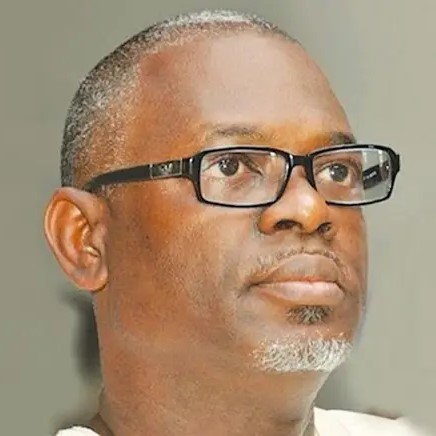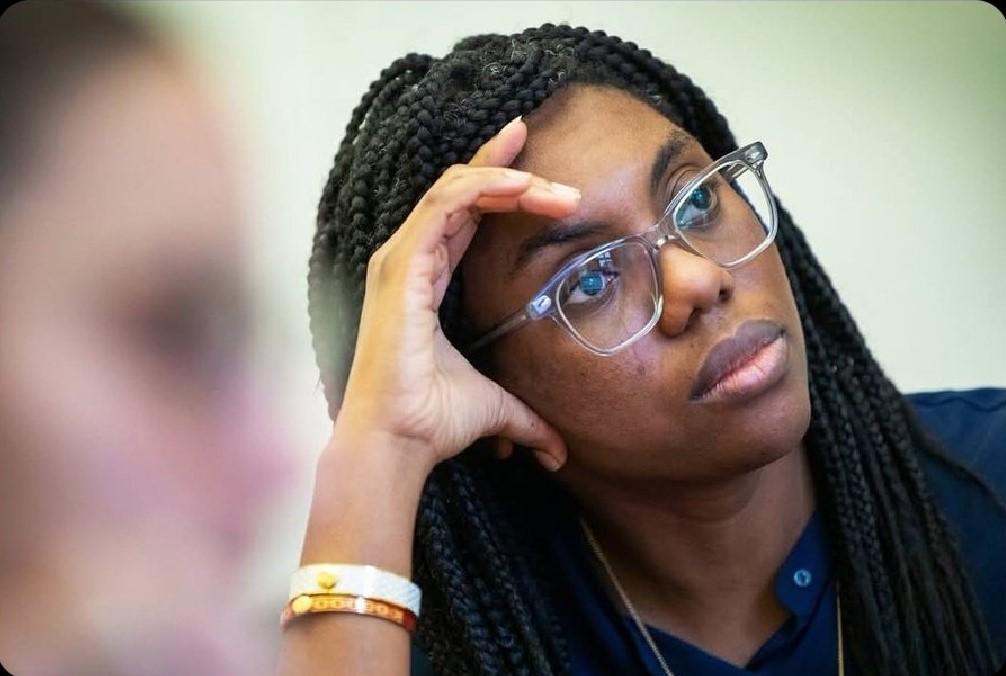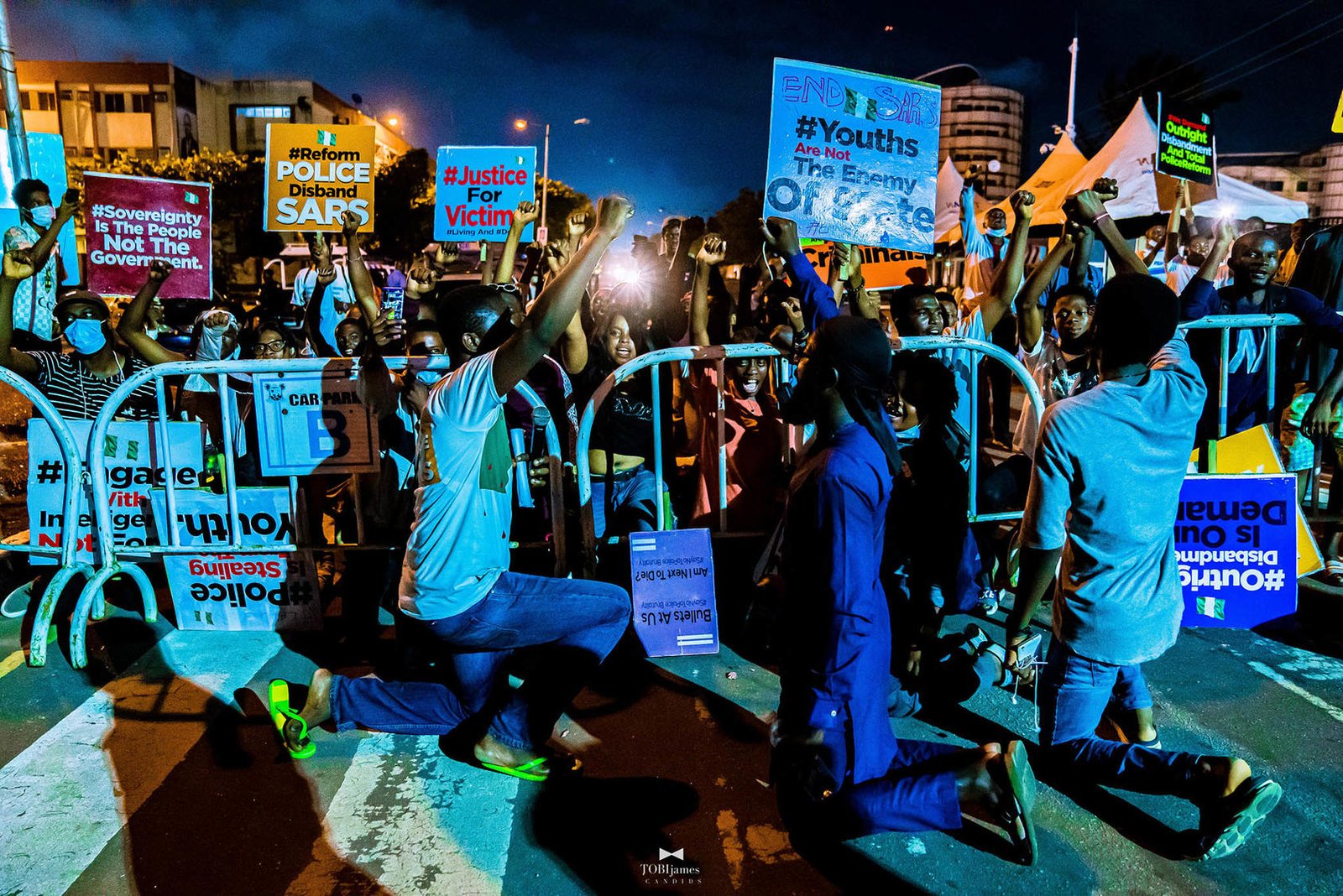Kemi Badenoch’s comments on Nigerian identity spark debate, but do they reflect a deeper malaise rooted in colonial and pre-colonial history, or is she being scapegoated for Nigeria’s ugly political reality, asks Akin Osuntokun, former DG of Obi/Datti Presidential Campaign Council in this opinion piece.
“I find it interesting that everybody defines me as being Nigerian. I identify less with the country than with the specific ethnicity [Yoruba]. That’s what I really am. I have nothing in common with the people from the north of the country, Boko Haram, where Islamism is. Those were our ethnic enemies and yet you end up being lumped in with those people” – Kemi Badenoch.
“My point is that the only authentic identity for the African is the tribe… I am Nigerian because the white man created Nigeria and gave me that identity. I am black because the white man constructed black to be as different as possible from his white. But I was Igbo before the white man came.”-Chimamanda Adichie.
In regard to the first excerpt above, Badenoch is guilty of generalization and lack of empathy for the cause of promoting Nigerian national integration and little else. In which case, she belongs to the camp of the majority of Nigerians who are similarly alienated from contemporary Nigeria. Her real offense boils down to Marshall McLuhan’s concept of the “medium is the message.”
“The medium is the message” is a phrase created by Marshall McLuhan which sums up that the medium through which we choose to communicate holds as much, if not more, value than the message itself; that the form of a medium embeds itself in the message. If, therefore, Badenoch is not a potential Prime Minister of the United Kingdom, I doubt she would have provoked the current agitation of Nigerian commentators.
Similarly, conflating the entire Islamic North with the precolonial Sokoto caliphate is a category mistake to which we are all prone and care less about. It is reflected in such Yoruba local parlance as Gambari pa Fulani, ko le jo nnu (that a Gambari kills a Fulani is of no concern or consequence, they are understood as six and half a dozen). A ponle ni malla, Hausa ni Hausa jé (calling Hausa a malla is superfluous, Hausa is Hausa).

In his typical diabolical humor, Olubadan Asanike once issued a warrant of arrest on Audu Sokoto. Search parties reported they could not find Audu Sokoto but found another Audu called Audu Kano. Asanike promptly ordered the arrest of the latter as good enough.
Any agitation beyond this amounts to scapegoating the top British politician for the ugly political reality of Nigeria. Badenoch’s outburst is the symptom of a deeper underlying malaise with a deep taproot in colonial and precolonial Nigeria. As Anthony Kirk Green soberly reflected, “The tragedy of 1967 is that many of its seeds were not, as is often claimed, sown in October or even July 1966, but in the 1950s or, as some see it, in 1914 or maybe in 1900 itself.”
Nigeria has gotten this nasty habit of provoking the worst instinct from her citizens and then turning around to blame them for commensurate behavior. Among Badenoch’s critics are worse culprits including certified felons and nation wreckers who have stolen Nigeria blind; the oil subsidy scandal rogues and thieves, government spokesmen who openly propagated genocidal hatred against the Igbos; those who would deliberately lacerate Nigeria’s cleavages with an unconscionable Muslim/Muslim Presidential ticket.
“Nigeria has gotten this nasty habit of provoking the worst instinct from her citizens and then turning around to blame them for commensurate behaviour.”
Amongst them are those who follow the Buhari precedent to institute Yoruba parochial and discriminatory overcompensation; who arrogantly fostered apartheid rule over Kaduna state. Among them would number those who support the institutionalization of Almajiranchi; who employed political sharia to subvert a president who does not share their ethno-religious identity. Not to talk of a rogue Judiciary.
They bury their heads deep in the sand like the ostrich and choose to break the mirror for projecting their ugly but correct image back to them. With or without Badenoch, isn’t the most popular refrain in the country today that Nigeria is more divided now than at any time of post-civil war Nigeria?
I’m not a fan of right-wing politics, let alone the neo-Trumpian extreme right radicalism posturing. They generally tend towards bigotry; the pseudo-ideologues, the demagogues, and sundry political mercenaries who without real ideological convictions merely employ the platform as a tool for political gain.
I had earlier taken the position to refrain from joining the fray until we started seeing a trend of gross and chauvinistic demonization of Badenoch complete with a left-handed salute to her esteemed parentage.
“Badenoch’s outburst is the symptom of a deeper underlying malaise with a deep tap root in colonial and pre-colonial Nigeria.”
For those who thrive on dealing with the symptom while ignoring the underlying disease, let us provide authoritative retrospective context to the fulminations of Mrs. Badenoch.
In a typically honest appraisal of the ugly Nigerian reality, His Eminence, Sultan Saad Abubakar, on the 29th of January 2021, said, “We are not saying Fulanis are not part of the kidnappings as mentioned by the Secretary of Miyetti Allah, seven to eight kidnappers arrested are Fulanis, but that doesn’t mean every Fulani is a criminal, no they are not.” I wholeheartedly agree with him.
On May 19th, 2019, Mr. Nigeria himself, former President Olusegun Obasanjo, lamented what has become of Nigeria: “It is no longer an issue of lack of education and lack of employment for our youths in Nigeria which it began as. It is now West African Fulanisation, African Islamisation.”
On the 24th of March 2018, the man who should know, Theophilus Danjuma, fingered the Nigerian state as complicit in the genocidal atrocities being perpetrated on the Middle Belt Christian community: “If you wait for the armed forces to stop the killing, you all die one-by-one.”
“The ethnic cleansing must stop in Taraba State and other parts of Nigeria. Otherwise, Somalia will be a child’s place. I urge all of you to be at alert and defend your country. Defend your territory, defend your state.”
“Among Badenock’s critics are worse culprits, including certified felons and nation wreckers who have stolen Nigeria blind…”
On June 5th, 2022, two days preceding the attack on the Owo Catholic church, the chairman of the Miyetti Allah, Bello Bodejo, “addressed a mammoth crowd of Fulani pastoralists from across Nigeria and beyond and rained curses on some state governors whom, he claimed, chased Fulani pastoralists away from their states assuring them that peace will continue to elude them until they reverse their decisions. We know our friends and enemies and we will act at the right time.”
On the 11th of June 2022, Professor Wole Soyinka responded, “He (Governor Rotimi Akeredolu) was targeted and there is no question about that. It was not an accident and it passed a message to the rest of us. That is why I’m here. I want the governor to know that we have received the message.”
“We understand it and we came to sympathize with him that he was selected as a medium of that message.”
On the 27th of July 2018, a major actor in the 1967-70 Nigerian civil war, Gen. Alani Akinrinade (rtd), took a cursory look at what Nigeria has become 39 years after its end and declared, “I regret fighting in that war,” which he says “could have been avoided if the Aburi Accord (reached in Ghana) was not unilaterally jettisoned by General (Yakubu) Gowon.”
“It was useless fighting that war” and regrets his participation in it. On the Buhari charge that Nigerian national unity is not negotiable, Akinrinade remarked that: “Anything that’s not negotiable cannot make progress.”
On the 7th of August 2021, Obasanjo asked the Beninoise authorities to grant Sunday Igboho asylum, and not to return him to Nigeria.
On the 1st of May 2022, Nobel Laureate Wole Soyinka met with Yoruba Nation campaigner, Sunday Adeyemo, also known as Sunday Igboho. Also at the meeting was Professor Banji Akintoye.
“They bury their heads deep in the sand like the ostrich and choose to break the mirror to project their ugly but correct image back to them.”
Is it a coincidence that all these personalities are Yoruba save the Sultan? All these in a situation in which Buhari was playing Sinn Fein to the IRA of the Fulani militia.
Further back in time was the corrosive and subversive contribution of the British colonialists who nurtured a relationship of hatred and enmity as the legacy of colonial rule to Nigeria. Testimonies abound:
“Lugard pledged to the Sultan of Sokoto the commitment of the British administrators to protect the Muslims of the north from Christian proselytization. Sir Theodore Adams went as far as to say, in 1941, that the emirs considered the Northern provinces as a separate country and that enforced cooperation with the South would lead to a demand for ‘Pakistan.’”
In its 1958 editorial, Time magazine captured the scene at the London conference on the independence of Nigeria in 1957 with a sense of foreboding: “Under the great chandeliers of the Lancaster House music room, the Premiers (Nnamdi Azikiwe, Ahmadu Bello, and Obafemi Awolowo) bickered, shot insults back and forth like poisoned darts.”
According to Ruth First, “a frequently heard quip was that if all the Africans were to leave Nigeria, the Southern and Northern administrations could go to war.”
“In administration, in land policy, in a dozen different fields of colonial government, the administration reinforced not the unity of the colony, but the differences between North and South.”
In her day, Lady Lugard had contrasted “the higher types of the Northern States” with the “cannibal pagans” of the South. “The nearer to the coast, the worse was the native type… Sorcerers, idolaters, robbers and drunkards, they were indeed no better than their country,” pined Flora Shaw.
“Aided by his wife, Lugard’s fabrications still colour Whitehall’s attitudes to Nigeria, which can be summed up as pale-skinned Moslem North good, black-skinned Christian South bad.”
Fast forward to contemporary Nigeria and the siege laid to the South-West by preponderantly Fulani marauders and what you get is a sense of déjà vu.
“With or without Badenoch, isn’t the most popular refrain in the country today if Nigeria is more divided now than at any time in post-civil war Nigeria?”
Dr. Olufemi Adegoke died in the thick of another Yoruba nationalist resistance politics in 2021 against the degrading invasion of a Fulani herdsmen militia.
For people who were not resident in the South West at the material time, it may prove difficult to appreciate the provocative sense of degradation and helplessness.
Victims are seldom constrained to view their perceived tormentors with detached objectivity. Who feels it, knows it.
It begs the question: historically, how should the Yoruba characterize the caliphate seizure of Ilorin and their instrumentality to the collapse of the Oyo empire, especially as the theme keeps recurring in subsequent history of the Yoruba?
Reminiscing on the tragedy of Ilorin, Samuel Johnson noted: “Ilorin now passed into the hands of foreigners, the Fulanis, who had been invited as friends and allies.”
In sum, this was the socialization Badenoch received on Nigeria at the time of her father’s death.
Postscript: For the attention of American Abroad whose brain power belongs in the category of his idol, Benjamin Osuntokun. Your friend was actually the mischief maker!
The opinions expressed in this article are strictly those of the author and do not necessarily align with the views of JolibaLive News! or any of its staff members. The author is in no way associated with this online news blog.
Comment, Like 👍, share this article, and Follow us on our social media handles.







